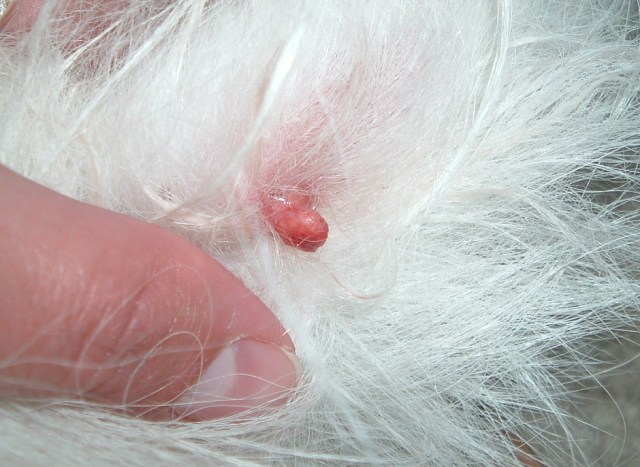QuestionMy boston terrier (age unknown but about 10 yrs) has consistently had red rashes on her belly, chews her feet almost raw for past 5 yrs since we rescued her from a puppy mill environment. She never shows emotions, just keeps on chewing and rubbing belly. Our vet has given her Kenolog on two occasions but is reluctant to give steroids. However I am concerned that this dog's quality of life is such that I cannot see why she should continue to suffer like she does. With last visit she was given Shampoo, antibiotics (everytime she goes she gets them), told to feed yogurt and put her on BARF dog food regimin. We have done all that and she still gets belly red, chews feet. Vet says she is allergic to grass also. I work for doctor and can get the same vial of Kenolog that they gave her twice, however I need to know the correct dosage for her. I cannot continue to take her to vets (financially) but do not want to see this dog suffer. I personally would like to give her an injection of Kenolog if I could find out how much. This seems to be the only thing that stops the itching and chewing for about 6-8 mo. She had a bad yeast infection on body, in ears and that has been cleared up but now we are back to the contant biting of the feet and the redness on her teets and stomach. I would appreciate your answer very much. Thank you and God Bless you for helping.
Paula Jones
AnswerI cannot tell you how much to give because steroids have to be given to effect. The dose in one dog may not be the same dose in another dog of the same weight. I would suggest that you call the vet and ask how much they gave last time. In addition to the shot, which only lasts a short time, I use cortisone tablets every other day or every third day during the allergy season to modulate the skin reaction to allergens. Constant use of cortisone can result in bacterial and yeast overgrowth and may lead to urinary tract infections, so some monitoring is required.

 American Eskimo skin growth
Question
Buddy
We have a 9-11 Year old American Eskimo.
American Eskimo skin growth
Question
Buddy
We have a 9-11 Year old American Eskimo.
 My 8 month old Great Pyrenees Pup
QuestionBefore and After
Places on Legs
Q
My 8 month old Great Pyrenees Pup
QuestionBefore and After
Places on Legs
Q
 Eye problem
Question
Ronnie
Hi,
I have a 6 month old englis
Eye problem
Question
Ronnie
Hi,
I have a 6 month old englis
 Possible Deaf Puppy.
Question
Paloma (white dove)
I have a 9 week old
Possible Deaf Puppy.
Question
Paloma (white dove)
I have a 9 week old
 Impossible allergies
Question
Belly
I rescued a male cat several years ago.
Impossible allergies
Question
Belly
I rescued a male cat several years ago.